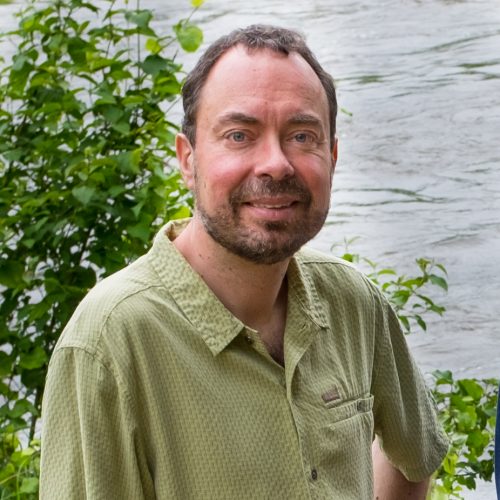
James Ellen Distinguished Professor Detlef Knappe received the A.P. Black Research Award from the American Water Works Association (AWWA). Knappe will be recognized during the American Water Works Association Annual Conference and Exposition in Toronto in June.
“It was a big surprise and very exciting to learn that I was selected. It is humbling looking at all the previous winners — many have been my teachers and mentors over the years, including my Ph.D. advisor Dr. Vernon Snoeyink.”
Detlef Knappe, James Ellen Distinguished Professor
The award was established in 1967 in honor of A. P. Black and recognizes outstanding research contributions to water science and water supply rendered over an appreciable period of time. Black was an influential member of the AWWA, serving as its president in 1949, as well as an internationally recognized expert in water and wastewater treatment.
Knappe’s research focuses on source water protection by identifying contaminants through targeted and non-targeted analyses and on the development of treatment approaches for the remediation of regulated and unregulated contaminants.
His interest in environmental engineering began as a child growing up in the Black Forest of Germany, where acid rain and the associated death of trees was a chief concern. After taking a class on water and wastewater treatment at the University of Illinois at Urbana-Champaign — where he earned his B.S., M.S., and Ph.D. degrees in environmental engineering — he became interested in the effects of organic contaminants on drinking water quality and treatment approaches for their removal.
At NC State, he led the CCEE research team that helped uncover the presence of GenX, a synthetic chemical, and other per- and polyfluoroalkyl substances (PFAS) in North Carolina’s Cape Fear River.
“The drinking water contamination really created a broad public outcry,” Knappe said. “As a result of pressure from regulators, public officials, and people in affected communities,the polluter agreed to stop discharging wastewater into the river, which led to a steep decline in PFAS concentrations in the water. PFAS contamination has become a top priority for the EPA, and there has been renewed policy attention for managing PFAS in the environment and drinking water.”
Knappe serves as deputy director of NC State’s Center for Environmental and Human Health Effects of PFAS, a member of NC State’s Center for Human Health and the Environment, and faculty advisor for the NC Safewater Student Chapter at NC State.
As a member of AWWA, Knappe said the professional water sector organization serves as an important vessel for delivering continuing education content and helping members stay abreast of the latest technology.
“AWWA provides an entryway for young professionals into the water sector and provides continuing education opportunities for professionals at all levels of the water treatment sector.”
